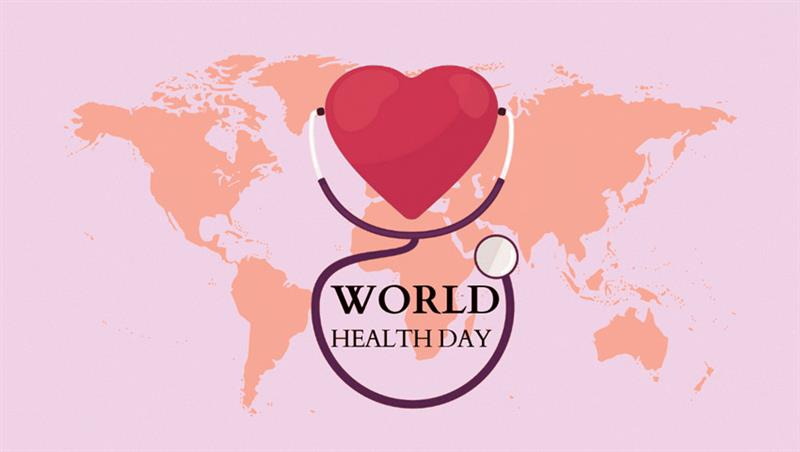21 Apr, 2025

It is interesting that the day we honour World Health Day, we place in the spotlight a part of society that would like to be unseen when it comes to public health—the aged. Geriatric patients do present with some health and hygiene issues which require extra attention and care. With progressing age, hygiene not only becomes convenient but something easy in the prevention of infection, management of chronic disease, and overall feeling of dignity and wellness.
It is in Pioneer Hygiene that we truly value the final requirement of high-performance hygiene solutions dedicated to the needs of the elders. While our products are best-in-class in terms of peak performance, ease of use, and reliability, sustainability practice is not something we lack either. Yet sterility, protection against infection, and efficiency during operations do assume priority in the hospital. Elderly homes, thereby making disposable hygiene products a mandatory requirement in the name of security and adherence to protocol for their safety.
The Importance of Geriatric Hygiene on World Health Day
World Health Day on 7th April every year is a global initiative by the World Health Organization (WHO) in which an effort is being made to tackle the basic problems of health and fair access to medication. “Health for All” is the theme this year based on the relevance of universal policies regarding health—namely, vulnerable sections like geriatric people—are to our well-being.
The Rise of the Geriatric Population
The world is witnessing an all-time record increase in the aged population. In the year 2050, the aged over 65 years will constitute nearly 16% of the world’s population, as per United Nations projections. The type of population dynamics this entails necessitates greater concentration on geriatric care, preventive health care, and control of hygiene so that the old remain healthy and live their lives with dignity.
Important Hygiene Challenges Confronting the Older Population
Along with increasing older age is the inevitable weakening of physical and mental capacity, so that even simple hygiene protocols can become problematic. Among the most prevalent issues are:
Decreased Mobility and Problems with Personal Hygiene
Most of the elderly patients have arthritis, wasting of muscles, or balance disorder, and thus bathing, tooth brushing, or dressing becomes difficult. The elderly will eschew such routine chores if left to themselves, leading to dermatological illness, oral illness, and overall unhappiness.
Incontinence and Its Hygienic Implications
Urinary incontinence is encountered in a significant majority of elderly patients, especially institution patients. Severe pressure ulcers and painful skin irritation with a tendency to become infected. In this case, disposable adult diapers, sanitizing wipes, and absorbent underpads are comfort and hygiene items.
Cognitive Decline and Hygiene Neglect
Alzheimer’s or dementia can impair the patient’s memory or capacity for performing simple hygienic procedures. The caregivers are therefore compelled to employ a preventive practice in the form of bath baths, oral care, and clean clothes in an attempt to avoid infection as well as other accompanying complications from a medical standpoint.
Hospital and nursing home elderly patients are vulnerable to infection by antibiotic-resistant bacteria through more widely shared environments and more frequent reuse of medical equipment. Disposable hygiene products, such as medical wipes, disposable gloves, and sterile sheets, are required to avoid cross-contamination and maintain patient health.
The Revolutionary Role of Proper Hygiene in Maintaining Older Adults’ Health
Colossal hygiene measures can be an undue blessing for the elderly, and they can cause physical and mental well-being.
Prevention of Infections and Lower Hospitalization Rates
Simple but insistent hygiene practices—like incessant hand washing, incessant appliance incontinence changing, and living space disinfection—will cut infection rates sharply. Elderly immune systems being weakened, forward care will be more effective than intervention.
Comfort and Dignity Preservation
Hygiene issues, particularly incontinence, may be the cause of great shame for elderly people. Good quality disposable hygiene products like odour-controlling adult nappies and sensitive cleaning wipes give physical and emotional relief and enable elderly people to feel dignified and acceptable within society.
Protection of Fragile Skin
Thin, dry, and easily infected and cut skin is the hallmark of aging skin. Sophisticated aids to hygiene include pH-balanced cleansing gels, barrier creams, and additional absorbency incontinence pads designed to reduce irritation and prevent skin breakages so prevalent among bed patients.
Conclusion
Today, on World Health Day, let us recommit to improving the hygiene standards of the elderly—a group that deserves our utmost care and focus. Pioneer Hygiene is proud to provide healthcare professionals and carers the efficient, consistent hygiene solutions they require to give individualised treatment to older patients. Help us to build a society where all seniors may enjoy the benefits of good hygiene and general well-being.